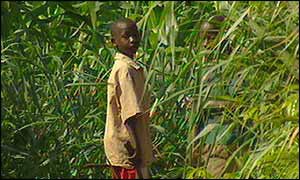
Beth Cooper
Recent brouhaha over police and teachers caught with fake degrees has exposed the ugly underbelly of education – its leviathan influence over anyone, anywhere, who needs a job.
The fact that first world professionals are tempted to fast-track promotion and bigger pay cheques by fudging qualifications – often through phony online institutions – highlights how much higher learning counts in the modern world.
For citizens of poorer countries, education is a lottery ticket, with thousands of children unable to read, write or add numbers, let alone secure the luxury of a degree or diploma – fake or not.
In 2000, research by the US State Department on The Ivory Coast suggested that roughly 15 000 children aged between 9 and 12 were sold into forced labor to work on plantations, harvesting coffee, cocoa and cotton. Chocolate companies apparently refuse to offer Fair Trade alternatives to farmers, who are poverty-stricken and forced to rely on child labor.
The International Institute of Tropical Agriculture (IITA) conducted an extensive study of cocoa farms in the Ivory Coast, Ghana, Nigeria and Cameroon, researching more than 4 500 producers. They found that while child slavery was limited, other forms of child labor was widespread.
More than a quarter of a million children worked under dangerous conditions on cocoa farms. Hazardous tasks included using machetes, spraying pesticides and applying insecticides without protective equipment.
The problem is, cocoa is big business in these countries. In Ghana alone, cocoa accounts for 40% of total export revenues, with two million farmers employed in the industry. The Ivory Coast is the world’s largest producer of cocoa, with a 43% share of the global market.
In South Africa, where race-divided education resulted in millions of black children and adolescents failing to finish primary or high school, the situation is equally bleak.
Figures recently released by Statistics SA revealed that nearly 200 000 pupils between 7 and 15 – the compulsory school age – did not attend school last year.
Ironically, access to a good, solid education has become much easier since the birth of internet. At Free Online Education, for example, quality distance education (non-accredited) is offered worldwide at no cost. The extensive course catalogue covers virtually every academic discipline, from aerodynamics to surgery room procedures.
For the first time in human history, anyone with access to a computer has the ability to learn English as a second language, tackle a tourism qualification, study grammar, explore geometry or learn how to run a small business.
According to a report by The College Boards, the gap in earnings over a lifetime between “those with a high school diploma and a BA or higher exceeds $1 000 000.”
For children who work as under-age laborers or battle to find even one square meal a day, the smorgasbord of opportunity afforded by a classroom or lecture hall will always be a pipe dream.
ENDS

